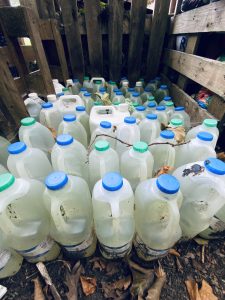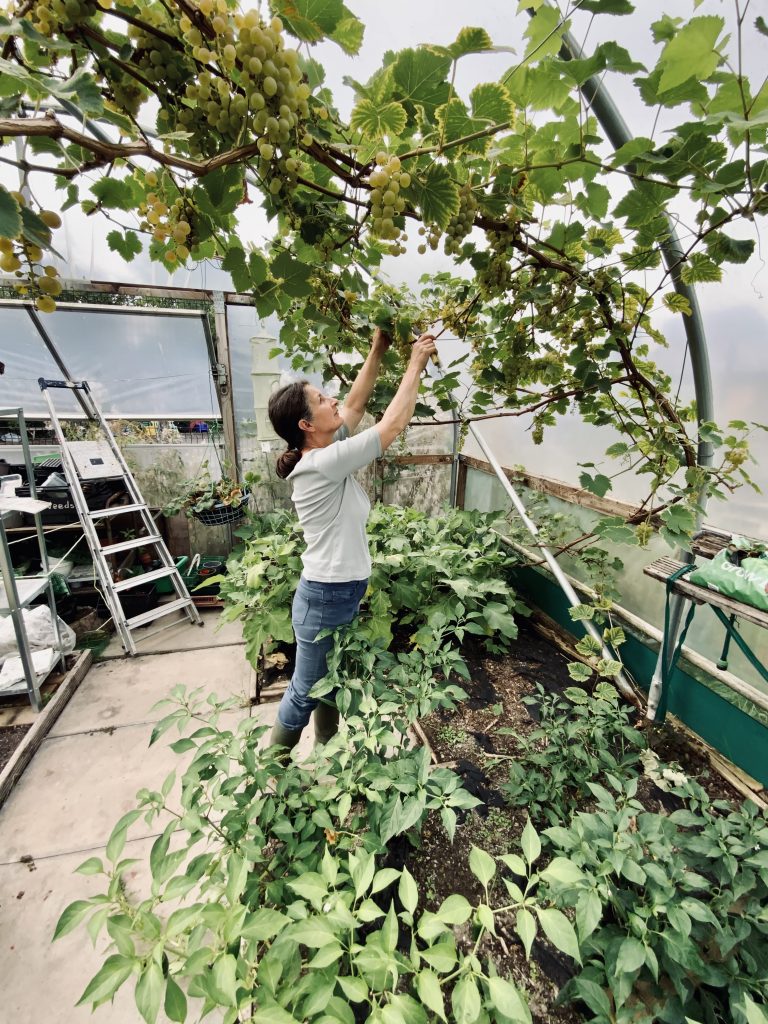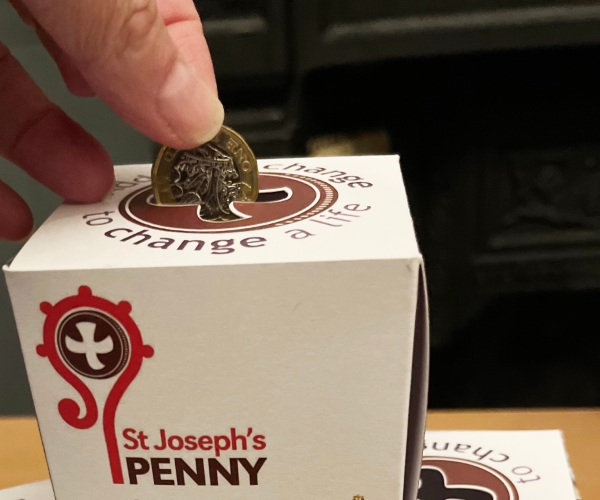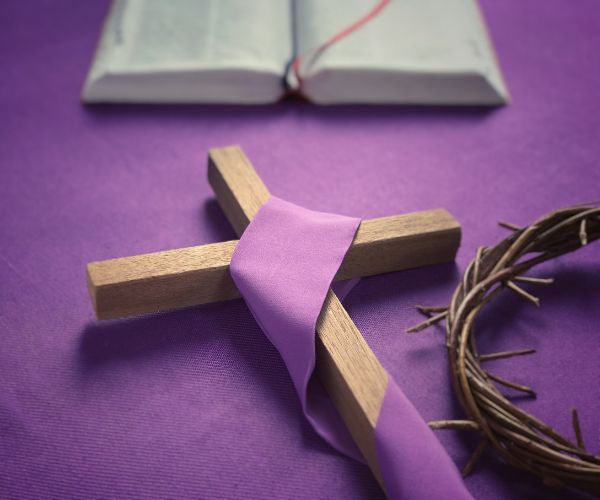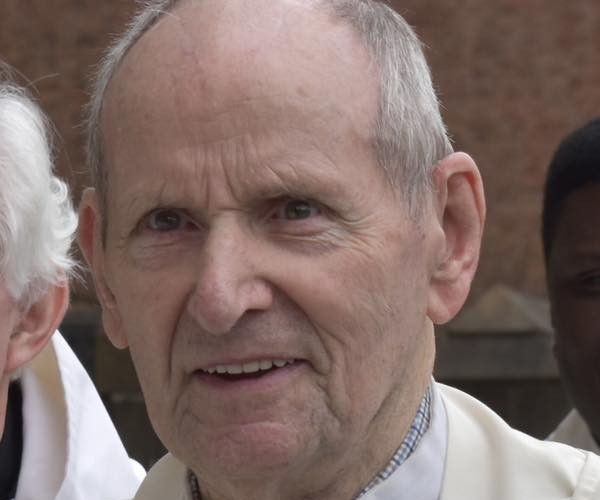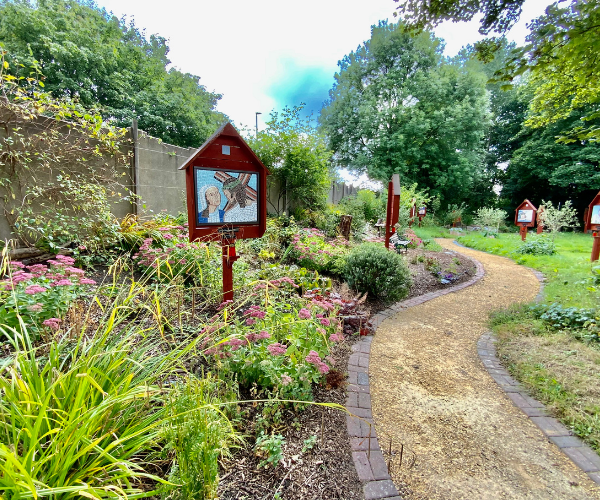
Parish garden project inspires a future of sustainability
Thursday 23rd September 2021An inner-city parish is challenging people across the diocese to adopt a “waste not, want not” lifestyle in a bid to build a more sustainable future.
Hidden among the red brick terraces of Gorton lies an oasis of natural beauty: a not-so-secret garden that strives to care for the community and our common home.
The Parish of the Sacred Heart and St Francis began work on its community garden almost 10 years ago, transforming a grassy area of land into a breath-taking garden, complete with allotment and polytunnel, for the whole community.
Lovingly cared for by a dedicated team of volunteers, the garden is an inspiring example of sustainability; a success story of how reusing and recycling can generate a new lease of life.
Parishioner and volunteer Wendy Schofield said: “We try to recycle and reuse practically everything.
“We try to keep seeds so we can reuse them next year and we reuse all of our plant pots.
“We need to use what we’ve already got rather than going out and buying new things. It’s cost effective for the parish for one, and it’s about reusing what we can so we’re not impacting the environment.”
The ethos of the Sacred Heart and St Francis Parish Garden transports us back to a simpler time, a time where people made use of nature and the materials we already had to create something new and nourish our natural environment.
With this in mind, the team work hard to make use of everything that comes their way; recycling plants and pots to create beautiful arrangements to sell and reinvest back into the garden.
Parishioners also bring their used flower baskets to be renewed with new flowers instead of going out and buying a new basket.
In a bid to protect and encourage biodiversity, the garden is also making a particular effort to create a welcoming home for insects, reusing discarded wood to build beetle houses, planting flowers and shrubs to attract wildlife, and opting to use natural ingredients instead of harmful chemicals.
Wendy explained: “We don’t use weedkiller because we want to be as friendly as possible to the insects.
“It’s important to be as gentle as we can, so we use beer to entice the slugs away from the plants and white vinegar for the weeds.
“We’re also keeping naturally wild areas to encourage wildlife and more biodiversity.”
The team are also turning to Mother Nature to help nourish the luscious array of plants, shrubs, and bushes in the garden’s borders.
Instead of using manufactured fertilisers, volunteers make their own from a mixture of comfrey plants, leaf mould, banana skins, and even pot ash from the church’s biomass boiler.
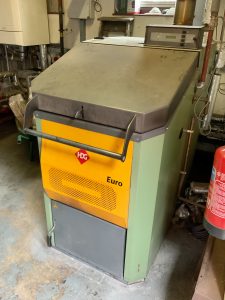 Biomass is a form of renewable, low-carbon energy that is generated from burning organic materials such as wood, plants, and other natural waste. Although it does generate some carbon dioxide, it is substantially less than fossil fuels; it makes use of the materials nature provides and could be much more cost-effective than less sustainable forms of energy.
Biomass is a form of renewable, low-carbon energy that is generated from burning organic materials such as wood, plants, and other natural waste. Although it does generate some carbon dioxide, it is substantially less than fossil fuels; it makes use of the materials nature provides and could be much more cost-effective than less sustainable forms of energy.
Ann Todd, another parishioner and volunteer, said: “We recycle everything – even cardboard can go in the compost.
“It’s about what can be reused. It’s a case of thinking can I make something else from it, or repair it, rather than throwing it away.
“Years ago, people lived off the land, so we couldn’t afford to not look after it. It’s that change in society where we just throw things away and go and get something new without thinking of ways we can reuse or recycle.”
From collecting plastic milk containers to store water harvested from the gutters or rainfall, to making use of materials others are throwing away, the volunteers have perfected the “waste not, want not” lifestyle.
Surrounding the lawn and wildflower meadow is the beginnings of a path, a slow but steady process that is being developed over time, as and when bricks about to be discarded are donated from the local community.
Dotted along the path are the Stations of the Cross, beautiful mosaics hand decorated by parishioners and presented on tall wooden stands.
Ann said: “We’d just love more people to come, just to sit or do the Stations of the Cross.
“And getting more volunteers would really, really help. Even just one person makes a big difference and it’s great being out in the fresh air and among nature.”
Wendy added: “It’s also great to have children and staff from Sacred Heart Primary School involved by planting vegetables, creating bug houses as well as joining local litter picks at Sunnybrow Park and surrounding area.”
Parish priest Father Kevin Murphy is delighted by the progress of the garden and is eager to offer his thanks to the hardworking volunteers and to encourage more people to come and enjoy the fruits of their labours.
He said: “The volunteers are fantastic. They are out there in the garden in all weathers, all year round – even through Christmas and the depths of winter. They put in incredible hours.
“We’d love to see more people use the garden, particularly people outside our parish and people who might not have gardens of their own.”
Inspired by the call to ecological and social conversion in Pope Francis’ letter Laudato Si’, Fr Kevin is eager to address both the cry of the earth and the cry of the poor by exploring opportunities to use the garden for outreach projects within the local community, such as local foodbanks – which the garden has been supporting through the Trussell Trust since 2013 – and charities to help the homeless.
Hoping their small steps to sustainability will make a big impact on their community, volunteers are eager to encourage others to follow in their footsteps to protect both planet and people.
Ann said: “The Earth is not an unlimited resource – we can’t just keep taking and taking.
“It’s impacting on other people, especially in poorer countries. It’s about everybody doing their bit and using things carefully.
“It’s such a beautiful world and we have to look after it.”
Tagged | Around the Diocese | Parishes

